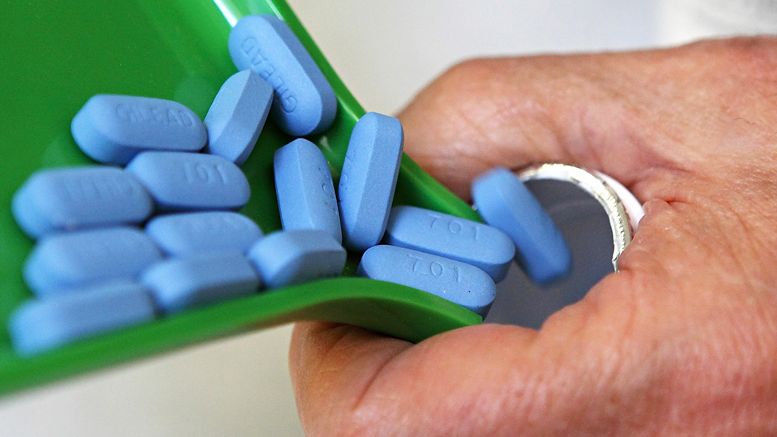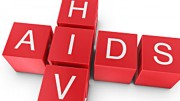AIDS 2016 will mean more experts doign HIV research, talking PrEP stigma, sexually-transmitted infections and transgender women issues, msm issues and much more
Digital technologies. Social networks. Breakthroughs in habit formation. Advances in medical therapy. These are some of the innovative tools that scientists and researchers at The Fenway Institute are exploring to fight the HIV pandemic here at home and around the world. Next week, a team of five Fenway scientists and researchers led by Kenneth H. Mayer, M.D., Medical Research Director and Co-Chair of The Fenway Institute, will bring their latest findings to the International AIDS Conference in Durban, South Africa.
The annual event features experts in science, public policy, and public health presenting new research in HIV treatment, prevention, and awareness. These experts, working in collaboration with a powerful community of those affected by HIV, then try to figure out how to best turn these advances into action in doctor’s offices, AIDS service organizations, and community-based organizations.
The following research by Fenway-affiliated scientists, researchers, and policymakers will be presented at next week’s International AIDS Conference.
Digital technology and social networks
Sari L. Reisner, Sc.D., Research Scientist at The Fenway Institute, will present findings on how social networks are being leveraged to introduce and disseminate PrEP (pre-exposure prophylaxis) among transgender women in Lima, Peru. Matthew J. Mimiaga, Sc.D., M.P.H., Fenway’s Senior Research Scientist and Director, Epidemiology and Global Health Research, is also a coauthor of this research.
Fenway Research Scientist Katie Biello Ph.D., M.P.H., will present results from a pilot randomized controlled trial in which counseling on how to reduce HIV risk was delivered via mobile phone to male sex workers in Chennai, India.
Research coauthored by Biello, Mimiaga, and Mayer on the development of a mobile app to get more U.S.-based young men who have sex with men to get tested for HIV will be presented.
Influencing behavior
Sean Cahill, Ph.D., The Fenway Institute’s Director of Health Policy Research, will discuss how the Ryan White HIV/AIDS Program’s support for comprehensive services for people living with HIV helps them remain in care and reduce their levels of HIV to undetectable levels.
Mayer and Fenway Affiliated Investigator Conall O’Cleirigh, Ph.D., a, will present during a breakout session on improving the sexual health of gay men. Mayer will discuss how to “bend the curve” on incidences of sexually-transmitted bacterial diseases in men who have sex with men. O’Cleirigh will discuss evidence-based interventions that can be employed to promote the behavioral health of men who have sex with men.
Research on a community-based approach to HIV prevention, care and treatment among transgender women in Peru coauthored by Mayer and Reisner will be presented.
Research on the impact of life skills coaching in a group-based behavioral intervention among young transgender women coauthored by Reisner, Biello, and Mimiaga will be presented.
Research on how the prevalence of alcohol dependence and active amphetamine use are substantial and associated comorbid mental health problems among male sex workers in Vietnam coauthored by Mimiaga, Biello, and Mayer will be presented.
Research on the knowledge, attitudes and practices of safer conception counseling among providers in Durban, South Africa contributed to by TFI-affiliated researcher Steven A. Safren, Ph.D. will be presented.
Impact of stigma and discrimination
Research on the critical role that mistrust of the medical and research establishments by transgender women plays in their acceptance of PrEP coauthored by Mayer and Mimiaga will be presented.
Research on how cognitive factors mediate the associations between perceived discrimination and health behaviors in heavy drinking HIV-infected MSM that Mayer coauthored will be presented.
Research from a qualitative study of PrEP stigma, pride and predicted community benefits among MSM and male sex workers that Mayer coauthored will be presented.
Medical and treatment advances
Cahill will chair a satellite symposium on the clinical skills needed to provide competent, affirming care to gay and bisexual men, and transgender women. During the symposium, O’Cleirigh will discuss best practices with regard to men who have sex with men.
Mayer will co-chair two breakout sessions on medical treatment advances.
Mayer will present on research that Reisner also co-authored on the perceived barriers to combining delivery of HIV prevention, testing and treatment services with feminizing hormone therapy for transgender women in Lima.
Research on the impact of the U.S. Prison Rape Elimination Act on risk of HIV transmission coauthored by Reisner will be presented.
Research on the impact on new HIV infections that immediate treatment for HIV with anti-retroviral therapy has in rural South Africa coauthored by Mayer and Mimiaga will be presented.
Research on global HIV epidemiology among transgender populations coauthored by Reisner will be presented.
Research on how gender inequalities influence disclosure of HIV status among HIV-positive men and women in Durban, South Africa who are partnered with HIV-negative individuals coauthored by Safren will be presented.
Research on how quality of life is impacted among individuals failing first-line antiretroviral therapy in resource-limited settings coauthored by Safren will be presented.
The significant health comorbidities in Black men who have sex with men who presented for a U.S.-based PrEP study that Mayer co-authored will be discussed.
Insights from healthcare providers and sexually-active Black men who have sex with men on how to deliver culturally competent PrEP care for which Mayer was a coauthor will be presented.
Research on the safety and acceptance of microbicides among young men that Mayer co-authored will be presented.
Research on the feasibility and acceptability of home-based support to streamline the delivery of PrEP that Mayer co-authored will be presented.
Research on client-centered care coordination utilization and PrEP acceptance among Black men who have sex with men that Mayer coauthored will be presented.
Research on the correlates for levels of self-reported PrEP adherence among Black men who have sex with men that Mayer coauthored will be presented.
Research on the incidence and correlates of sexually-transmitted infections among Black men who have sex with men who participated in a U.S.-based PrEP study coauthored by Mayer will be presented.
[From a News Release]







